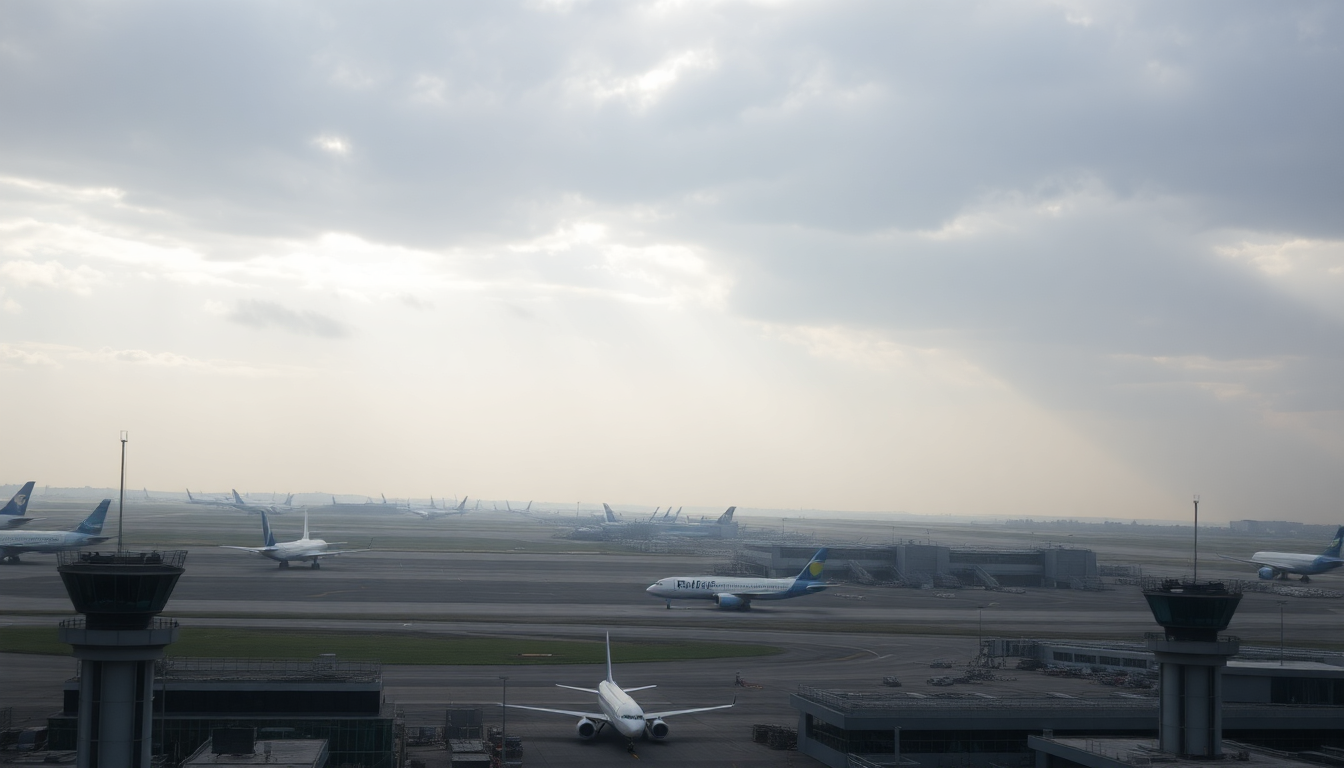Table of Contents
The global airline industry is currently facing some serious turbulence, and it’s not just about the weather. Recent geopolitical tensions between Iran and Israel, along with military interventions from the United States, have caused widespread disruptions. Even though a ceasefire has been announced, many airlines are still adjusting their flight operations, reflecting the ongoing instability in the region. Major hubs like Doha and Dubai are feeling the impact, with countless cancellations and reroutes affecting travelers all over the world. What does this mean for your next trip?
The Current State of Airline Operations
As the conflict intensified, airlines had no choice but to revamp their flight schedules, putting safety first. For example, Qatar Airways had to suspend its flights following the temporary closure of Qatar’s airspace, which came right after Iran’s missile attack on US forces at Al Udeid Air Base. This incident is just one of many that have ramped up caution among carriers operating in the region. How are airlines navigating this tricky situation?
The ripple effect of these events has been significant. Airlines like Emirates and Gulf Air have extended cancellations and modified routes to steer clear of conflict zones. Real-time safety assessments have become crucial for these airlines as they navigate the volatile landscape of Middle Eastern air travel. According to data from FlightAware, there were a staggering 834 cancellations in just one day, illustrating the extent of the operational challenges.
Airports in the Middle East, known for being essential connecting hubs for international flights, are now grappling with unprecedented challenges. The swift changes in airspace regulations and flight paths show just how delicate the balance is between operational efficiency and traveler safety. As the geopolitical landscape shifts, airlines need to stay nimble to adapt to the ever-evolving situation.
Regional Airports and Their Operational Status
The closure of airspaces is not just affecting airlines; it’s also impacting passenger flow through key airports. Take Ben Gurion Airport near Tel Aviv, for example. It’s gradually resuming full operations, which could signal a return to normalcy. However, uncertainty still looms around Iranian airspace, and the communication to international carriers hasn’t been crystal clear. What do travelers need to know about these changes?
Some countries are starting to announce the reopening of their airspace, and Iraqi airspace has reportedly reopened, allowing flights to transit through it once again. But many airlines remain cautious; Singapore Airlines and British Airways have suspended certain routes based on ongoing security assessments. This situation underscores the complexities involved in managing international air travel during times of conflict.
While some airlines have managed to reroute flights to keep services running, the priority remains on avoiding areas of heightened risk. This trend reflects a broader industry shift towards prioritizing passenger safety. Many carriers are choosing longer, safer routes, even if it means less convenience for travelers. How can passengers prepare for these changes?
Looking Ahead: Trends and Implications for Travelers
As the global airline industry grapples with these challenges, it’s essential for travelers to stay informed about the ongoing situation. The impact of geopolitical events on airline travel is likely to stick around, influencing both flight availability and pricing. If you’re planning to fly soon, be prepared for potential delays, cancellations, and route changes as airlines adjust to this complex environment. Are you ready for the unexpected?
Moreover, this current landscape emphasizes the importance of flexibility in travel plans. Passengers should keep an eye on airline communications and be open to alternative routes if necessary. The ability to adapt to changing circumstances will be crucial as the situation unfolds.
In summary, while the airline industry has shown resilience, the current geopolitical tensions present significant challenges. Airlines are actively working to ensure passenger safety while striving to maintain their operations amidst ongoing disruptions. For travelers, staying informed and prepared is key to navigating this evolving landscape. Are you equipped to handle the journey ahead?


